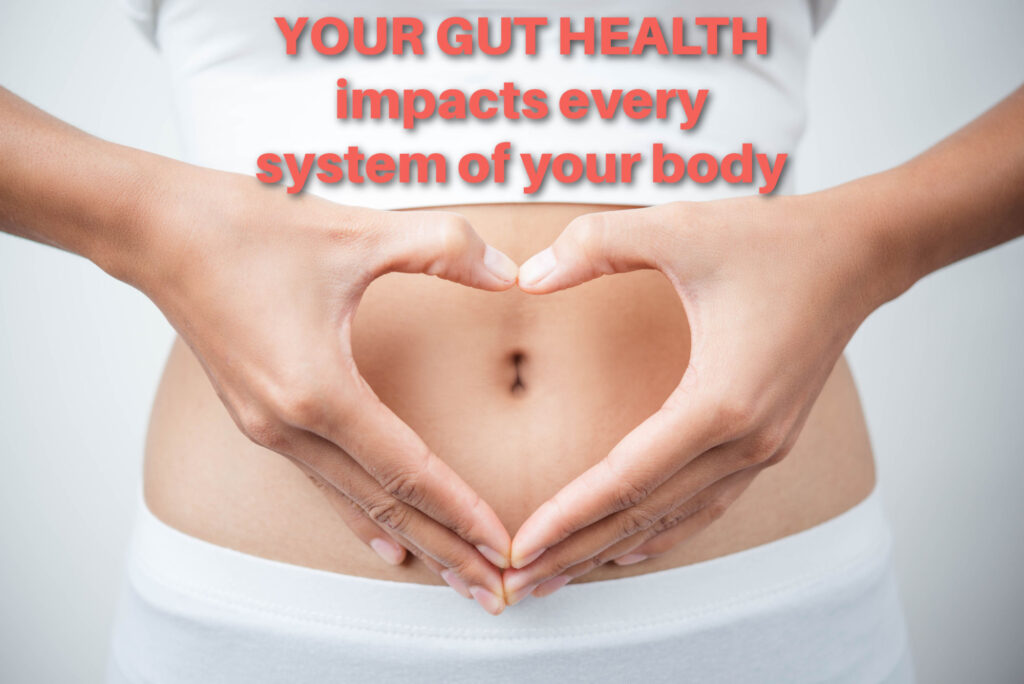
Are you experiencing any of these symptoms?
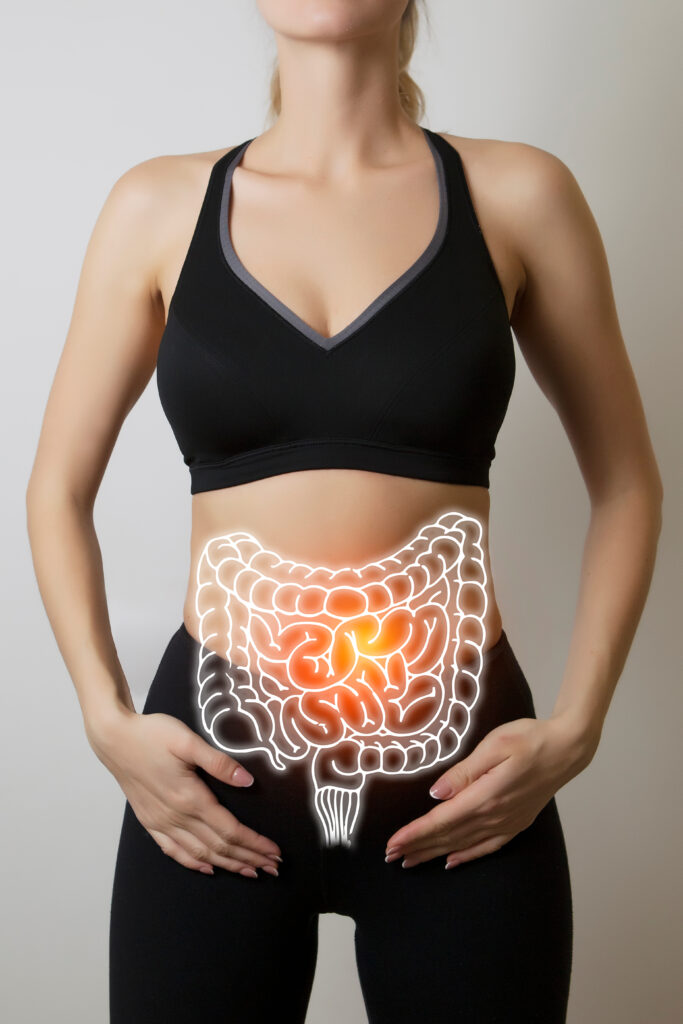
- Gas or bloating after meals
- Constipation
- Heartburn
- Stomach aches
- Joint pain and stiffness
- Muscle pain or weakness
- Low energy
- Chronic fatigue
- Brain fog
- Mild depression
IF YES…
The primary root cause could very possibly be your gut health. Yes, even if you have no negative digestive symptoms. In this post, I share why getting back to the basics of good nutrition is the first step in healing your gut.
Poor Gut Health Sabotages Weight Loss
Diminished gut health, especially leaky gut, has been linked to weight gain and difficulty in losing weight. It can also increase the risk of developing diabetes.
The good news… Diet and habits beneficial for your gut will greatly support your weight loss goals.
Keep it simple and start with diet basics.
Without a healthy nutritional foundation, most other strategies will fail. Avoid becoming overwhelmed by taking a few small steps.
Eat to produce more “feel good” hormones!
Feel-good” hormones, such as serotonin, dopamine, oxytocin, and endorphins are predominantly produced in the gut. But they decrease greatly when the gut biome is unhealthy.

Step #1
Eat 5-6 organic fruits and vegetables every day. These contain prebiotics that feed the healthy bacteria in your gut.
Step #2
Cut way back on sugary or processed snacks. Healthy homemade treats are easy to make and can be very satisfying. Get a few of our favorite recipes HERE

Foods that disrupt gut health and promote weight gain:
- Refined sugar
- Refined carbohydrates, especially wheat
- Processed foods with preservatives, additives, and GMO ingredients
- Unhealthy vegetable oils like canola, soybean, and most other vegetable oils
- Most fried foods
- Artificial sweeteners like sucralose and aspartame
- Emulsifiers found in ice cream or coffee creamers
- Frequent alcohol consumption
- Food sensitivities, often undisclosed, such as dairy, grains, nuts, and legumes
Feel Lousy? You’re Probably Inflamed
The foods above starve the healthy bacteria and feed the unhealthy bacteria we should reduce. They also cause inflammation throughout the body, robbing us of energy and well-being. They also can trigger uncontrollable cravings for the very foods we should avoid.
Common foods that promote a healthy gut and weight loss:
Fruits: Apples, avocados, bananas, berries, pears, tomatoes
Veggies: Broccoli, carrots, cucumber, garlic, mushrooms, onions, sweet potatoes, dark green and leafy vegetables.
Other: Bone broth, coconut flour, apple cider vinegar, dark chocolate, ginger, honey, legumes, quinoa, wild rice, peppermint, salmon.
Quick & Effective Probiotic “Shortcut” to a Healthy Gut Biome
While there is no shortcut to good nutrition and a stable healthy gut biome, there is a very fast and effective way to re-florish your biome quickly from the “bottom up”. Dr. Victoria Bowman, PhD has developed a probiotic that is administered rectally – only inches away from where the healthy bacteria need to get! LEARN MORE
To kickstart your gut health journey, follow this simple 14-day plan: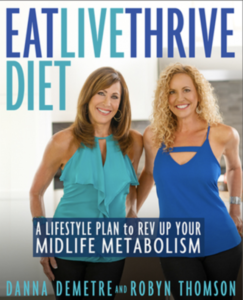
- 14-Day Elimination Diet: Exclude all grains and added sugar* from your meals. (Based on Eat Live Thrive Diet)
- Consider eliminating other suspected food sensitivities such as dairy or nuts.
- Eliminate all unhealthy oils.
- Practice 12 to 14-hour intermittent fasting for digestive rest.
- Consume a cleansing drink, such as apple cider vinegar and lemon juice with ginger and cinnamon before meals.
- Ideally, eliminate alcohol.
- Gradually reintroduce one healthy grain at a time to test for sensitivity.
*You can have up to one tablespoon per day of organic honey or pure maple syrup in any of our tasty grain-free recipes. Visit www.EatLiveThriveDiet.com for a few of our favorites.
If you’re not familiar with our Eat Live Thrive Diet book, you can learn more HERE
Mindset Matters
Before you begin, check your mindset. When striving for optimal health and weight loss, knowing what to do is just one part of the challenge. Knowing how to get yourself to implement healthier choices is the other part of the success equation.
You Are What You Think
Changing our thoughts ultimately changes our emotions and actions. This provides the internal motivation needed to stay on track long enough to achieve and maintain excellent results.
Mindset tips:

- Drop the deprivation mentality – Instead of thinking “Poor me, I can’t eat my favorite foods,” replace it with “How I feel, and my health is more important to me than this food.”
- Adopt a “Progress over Perfection” mindset – Acknowledge that you won’t make dietary changes perfectly but focus on making progress.
- Identify negative thoughts about changing your diet and habits.
- Squash those thoughts and associated emotions quickly by recognizing them as lies.
- Choose healthy self-talk statements to counteract each lie.
- Repeat your new statements three or more times per day to reinforce new neural pathways.
- Make this a daily, lifelong habit and observe the positive difference it makes over time. This may take 70 to 280 days for long-standing habits. Trust me. The investment will be worth it.
Remember your WHY
When your diet causes discomfort and pain, you are highly motivated to stay on a healthier path. However, as you begin to heal and feel better, it can be tempting to fall back into old habits.
Remember the “PAIN”
Remind yourself daily of how awful you felt and how much better you feel when you stick to your plan. Imagine the worst-case scenario if you continue with unhealthy habits. Contrast that negativity by imagining the best-case scenario.
See yourself lean and full of vitality – looking and feeling years younger.
Work on your healthy self-talk every day and over time, you’ll develop a craving for foods that fully nourish your body. It may take months, but the results are worth it.

NEED HELP WITH YOUR SELF-TALK?
Check out our Healthy Self-Talk CDs and MP3s HERE
Go to the next level of total gut health with Dr. Mark Stengler’s brand new book:
The Holistic Guide to Gut Health
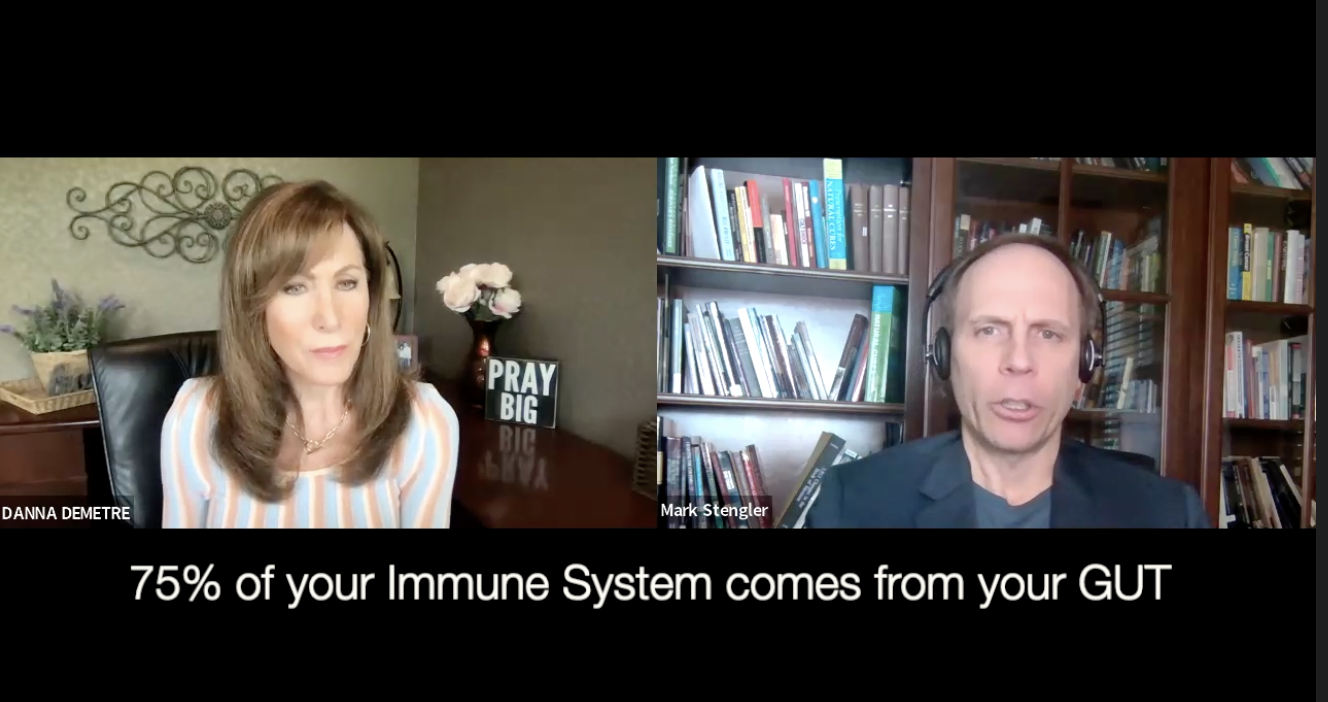
WATCH VIDEO interview with Dr. Stengler HERE
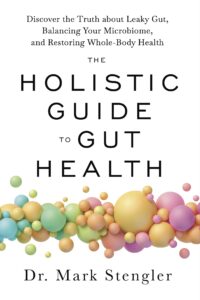 w
w




